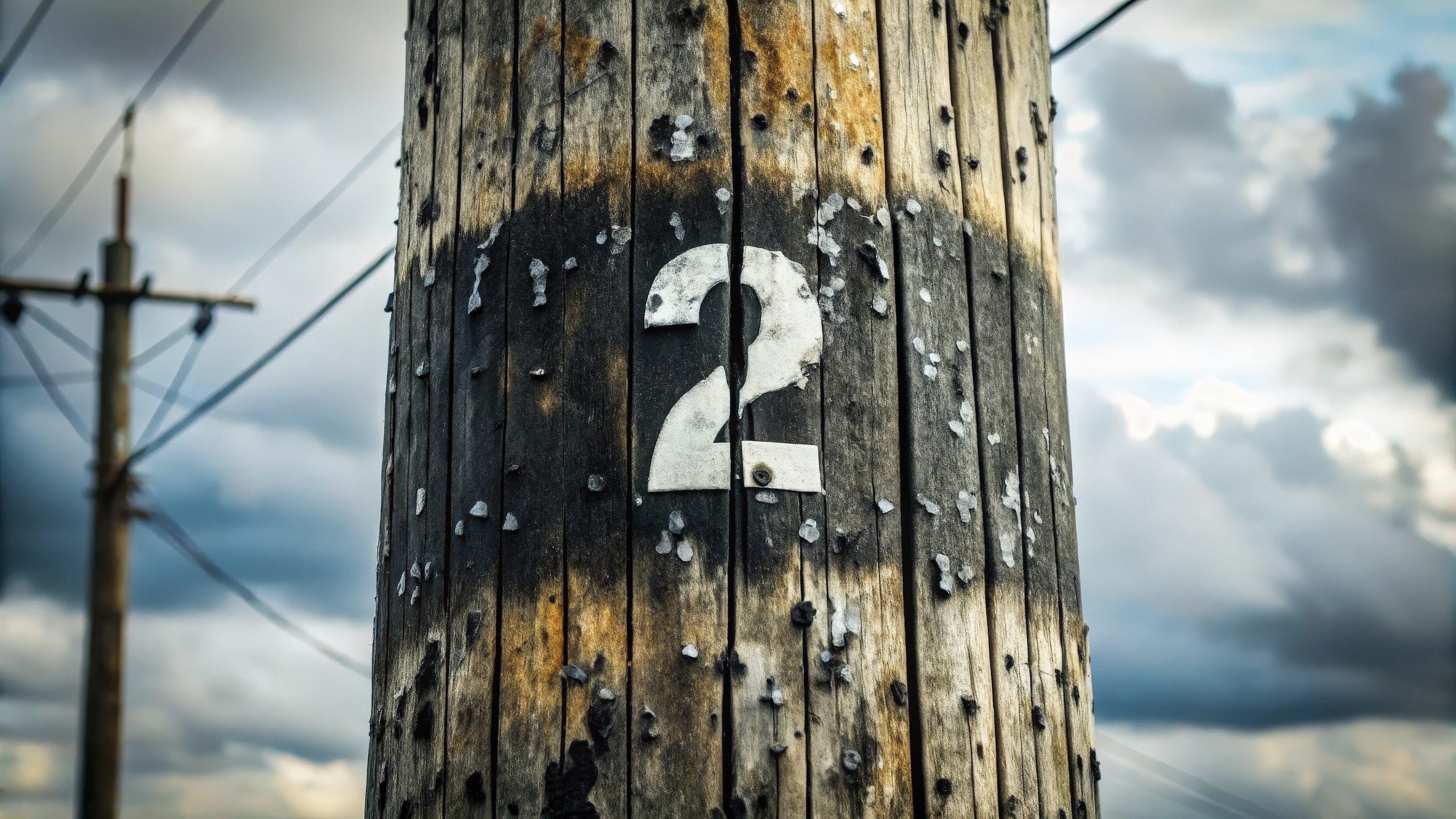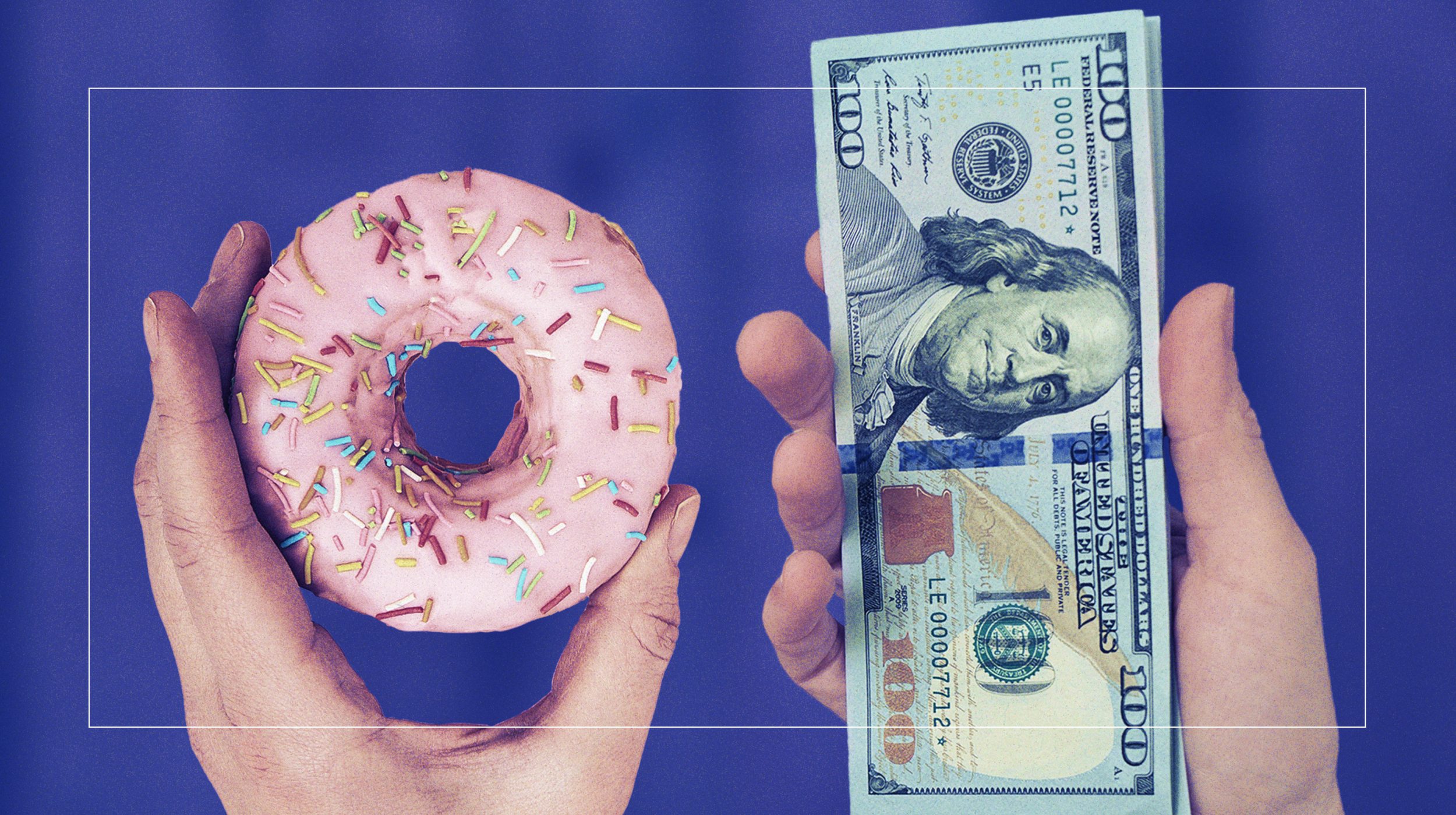GRETCHEN RUBIN: The key thing about a habit really comes down to decision-making because sometimes people think about it's something that you do repeatedly, or you know, it unfolds over time. But really the key thing about a habit is that you're not making a decision. You're not deciding whether to brush your teeth. You're not deciding whether to use a seatbelt. You're not deciding whether to go to the gym first thing in the morning. You've already decided, and the advantage of a habit is that once something's on automatic pilot, then the brain doesn't have to use any energy, or willpower to make a decision. You've already made that decision. You're just moving forward. And so, it happens easily without any thought, without any willpower, without any effort. You're just on cruise control, and then you can do what you wanna get done. Habit is like the invisible architecture of everyday life. Research shows that something like 40% of what we do every day we do in pretty much the same way and in the same context. So it's easy to see that if you have habits that work for you, you're much more likely to be happier, healthy, and more productive. If you have habits that don't work for you, it's really gonna drag you down, because such a big part of our days is taken up by habits.
CHARLES DUHIGG: And this gets to the way that habits work, which is that there's this thing called the habit loop. There's three parts to it. There's first a cue, which is a trigger for a behavior, and then the behavior itself, which we usually refer to as a routine, or scientists refer to as routine, and then there's the reward, and the reward is actually why the habit happens in the first place. It's how your brain sort of decides should I remember this pattern for the future or not? And the cue and the reward become neurologically intertwined until a sense of craving emerges that drives your behavior. And this actually explains so much of our lives, and not only our lives, but also how companies function.
DAN ARIELY: So what happened is that the world around us is designed to tempt us. You know, one of the principles from behavioral economics is choice architecture, the idea that we, when we are placed in an environment, we make decisions as a function of the environment we're in. Think about the environment that we're in. What is it about? Is it about our long-term health? Or is it about the short-term profits of that environment? You walk down the street, there's a coffee shop. What does this coffee shop want? They want you to be healthy in 30 years from now, or do you want them to, they, do they want you to buy another coffee right now? Dunkin' Donuts, what is their optimization function? Are they trying to get you to be healthy in 20 years, or to buy another donut now? Your cell phone, what is it trying to do, to get you to be a productive citizen in two years, or to check your phone a couple of more times today? So what happened is that we are in an environment that tempts us all the time. These temptations are only increasing, and because of that, we fail.
RUBIN: One of the mysteries of habits is why do we persist in having bad habits when we know they're not good for us, when they know they don't make us happy? But you know, there's usually multiple things going. Maybe it's what you want right this minute versus what you want on the long-term. Or maybe you want two things that are in conflict.
JULIA GALEF: One example of rationality in action, just to give you a sense of what it looks like, and how it's relevant, back in 1985, Intel had a large foot in the memory chip manufacturing business, and they'd been losing money on memory chips for years. So the two co-founders, Andy Grove and Gordon Moore, met to figure out what to do. And at one point, Andy asked, "What do you think a new CEO would do if the board kicked us out and brought in a new CEO?" And without hesitating, Gordon replied, "Oh he would get out of the memory business." And Andy said, "Well, so is there any reason we shouldn't do that, if we just walk out the door and come back in, and switch out of the memory business?" And in fact, that's exactly what they decided to do, and it was a huge success. And this is just one example of a cognitive bias that appears in lots of contexts and lots of scales called the commitment effect, where we stick with a business plan, or a career, or a relationship long after it's become quite clear that it's not doing anything for us, or that it's actively destructive, or self-destructive, because we have an irrational commitment to whatever we have been doing for a while, because we don't like the idea of our past investment having gone to waste, or because it's become part of our identity. And the technique that Andy and Gordon used to snap themselves out of their commitment effect is also a really generally useful technique called looking at a problem as if you were an outsider, or an outside party.
ARIELY: So here's what happens. When you think about your own life, you're trapped within your own perspective. You're trapped within your own emotions and feelings and so on. But if you give advice to somebody else, all of a sudden you're not trapped within that emotional combination mishmash complexity, and you can give advice that is more forward-looking, and not so specific to the emotions.
RUBIN: So when you have a bad habit, it's very helpful to think very clearly 'What do I really want over the long-term? What's really most important to me?' And that can help you fight back against the pull, the gravitational pull, that a bad habit can exert.
PENN JILLETTE: I was probably over 340, certainly around there. And now as I sit here in front of you I'm probably about 232. There's a fluctuation of a couple pounds that goes back and forth. It's a lot of weight. I did not lose it for vanity. I was pretty happy with myself fat. I didn't mind being fat. Wasn't a big deal to me. I didn't mind how I looked. But my health was getting bad. I didn't even mind how I felt very much, didn't mind, you know, not being energetic and stuff, but I started having blood pressure that was stupid high, like you know, the English voltage, like 220, even on blood pressure medicine. And I have two young children. I'm an old dad. My children, my daughter was born when I was 50. And now that I'm lighter, I feel lighter and I feel happier. And you know, there's a chance, my chances of living longer for my children have gone up considerably. You know, I lost my mom and dad when I was 45, and a year of my life was in deep, deep mourning, you know? And there's a very good chance my children will have to go through losing their dad, and I'd much rather they do that when they're a little older than having to do that when they're 15. It turns out that being with my children was more important to me than chocolate cake.
ADAM ALTER: If you look at life as a series of goals, which for many of us it is, it's a period of being unsuccessful in achieving the goal, then hitting the goal, then feeling like you haven't really got much from that goal, and going to the next one. Goals generally, I think, are in many ways broken processes. I think part of the problem with goals is that they don't tell you how to get to where you're going. A better thing to do is to use a system. So the idea behind a system rather than a goal is that a system is saying things like I'm a writer, my goal is to finish writing this book, but I'm not gonna think about it that way. Eventually, I'll have 100,000 words, but what my system will be that for an hour every morning I will sit in front of my computer screen, and I will type. It doesn't matter what that looks like. I'm not going to evaluate the number of words. I'm not gonna set some benchmarks, some artificial number or benchmark that I should reach. What I'm gonna do is just say here's my system, an hour a day in front of the screen, will do what I can, bam. And the thing is every time you set a system and you stick to it, you're achieving something. Instead of a goal that you're failing essentially for long periods of time until you reach the goal, you're succeeding every day, as long as you adhere to your system, and you end up getting to the same place, but that framing is so much more effective. It gives you the kind of positive feedback you seek. And a system is kind of geared towards psychological well-being. This is the thing I need to do to feel good about the way I'm moving through the world towards whatever end state I'm looking for. Goals don't do that. They just set signposts that you're supposed to look at from afar and move towards. Systems are a much more useful way of engaging with the world towards certain ends and certain outcomes.
SYLVIA TARA: You have to kind of build these self-control muscles, these habits, if you will, make it part of your lifestyle, so that it's automatic. It's not a big effort for you anymore. And so, you can start small. Start with small things. Make them a habit, and then build up to bigger things. There's also something called temptation bundling. And so, we can pair a want activity with a should activity. No one really wants to do a should activity all the time. It is a muscle, and even willpower, you have to give it a little bit of a break. And so, when people do a should activity all the time, they get fatigued, and they show healthcare workers, they're supposed to wash their hands all day, and they start doing it less at the end of the day. And so, when they give them longer breaks in between their shift, they find that they'll continue to do it. They'll wash their hands through to the end of the day. And so, it's important to take the breaks, engineer in a break into this long-term regimen that you have.
DUHIGG: Once a habit exists, you can't just quelch it. You can't, you can't pretend it's not there. You have to accommodate this need in your life. And so, the answer is to give yourself five minutes every hour. In fact, you can set an alarm at the end of every hour. Give yourself five minutes to surf the web, because if you allow yourself five minutes every hour, it won't explode into 45 minutes, because you've been trying to suppress it.
RUBIN: It's very important to know what a treat is. A treat is not a reward. It's not something that you get because you earned it. You don't have to justify it. A treat is something that you get because you want it, and treats may sound like kind of a selfish, self-indulgent strategy to use. But treats are very important, because the fact is treats help us get self-command. They energize us. They make us feel comforted and cared for. And when we are like that, then we can ask more of ourselves in other ways. So when we give more to ourselves, we can ask more from ourselves, and you often hear people when justifying a bad habit with like, "I need it, I've earned it, I deserve it." So, and a lot of times people go for unhealthy treats, because they feel like they need to recharge their battery. And so, they use an unhealthy treat. But if you load yourself with healthy treats, if you have a large lot of items to choose from—and it's not as easy to come up with a long list of healthy treats as you think—then you're gonna be able to recharge your battery. And there are some treats that are often unhealthy: food treats, technology treats, and shopping treats. A lot of times, these can become unhealthy treats very quickly. So if you use them, you have to be very mindful and use them judiciously and know that they're not gonna spiral out of control for you. One question is whether you're better off trying to do one habit at a time if you're trying to make change, or whether you do many all at once, and like many things with habit formation, there's just no magic answer. There's no one-size-fits-all solution. Some people do better when they start small, when they keep it very simple, and they gain the habit of the habit. They get a feeling of accomplishment, and it's very manageable and realistic, 'cause it's something very small, and it's just one thing. But on the other hand, there are some people who love to go big, that love big transformations, and big challenges. And so, something to do is to think about yourself, and think, well, when have I succeeded in the past, or what appeals more to my nature, and to think about what works for you, because there really isn't one perfect way to change a habit, or to change a bunch of habits.
Habits are easier to hack and change when you understand how they work.
▸
12 min
—
with
Sign up for the Smarter Faster newsletter
A weekly newsletter featuring the biggest ideas from the smartest people
▸
7 min
—
with
Related
This supremely simple hack can help you establish good habits, break bad ones, and guard against failure.
Psychologist Noel Brick shares the mental techniques we can use to improve our performance on and off the field.
The brain is highly plastic — the more we do a particular action, the more we change its makeup. Money is a great motivator for habit-forming actions.
Fulfillment at work isn’t about finding your passion; it’s about cultivating the relationships that create a sense of belonging.
Being more creative doesn’t require a ‘Muse.’ It’s about pairing intelligence and imagination.






